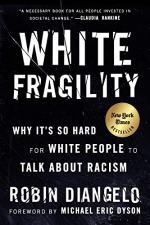
|
| Name: _________________________ | Period: ___________________ |
This quiz consists of 5 multiple choice and 5 short answer questions through Chapter 3.
Multiple Choice Questions
1. What does Diangelo say of race relations?
(a) They are profoundly complex.
(b) Only white people understand them.
(c) They are profoundly simple.
(d) Only people of color understand them.
2. What is aversive racism?
(a) Reverse racism.
(b) Racism that only affects certain ethnic groups.
(c) A manifestation of racism that well-intentioned people who see themselves as educated are more likely to exhibit.
(d) A manifestation of racism that only people who are bad and immoral are likely to exhibit.
3. Why is it problematic to deny a person of color's race, as Diangelo writes in Chapter 3?
(a) Because it means being complicit in the fight against racism.
(b) It is not problematic.
(c) Because a person of color might want to be seen.
(d) Because it is not polite.
4. What is objectivity?
(a) Objectivity holds that race is complex.
(b) Objectivity holds that it is possible to be free of bias.
(c) Objectivity holds that race is simple.
(d) Objectivity holds that it is impossible to be free of bias.
5. What does racism need to be distinguished from in order to understand it, according to Diangelo?
(a) Prejudice and discrimination.
(b) Assumptions and bias.
(c) Good and evil.
(d) Love and hate.
Short Answer Questions
1. Where does white supremacy draw much of its power?
2. According to Diangelo, what does it mean to deny a person of color's race?
3. Who does Diangelo believe causes the most damage to people of color?
4. What kinds of audiences does Diangelo primarily lead?
5. Who is pounding their fist in the first anecdote of the book?
|
This section contains 312 words (approx. 2 pages at 300 words per page) |

|




